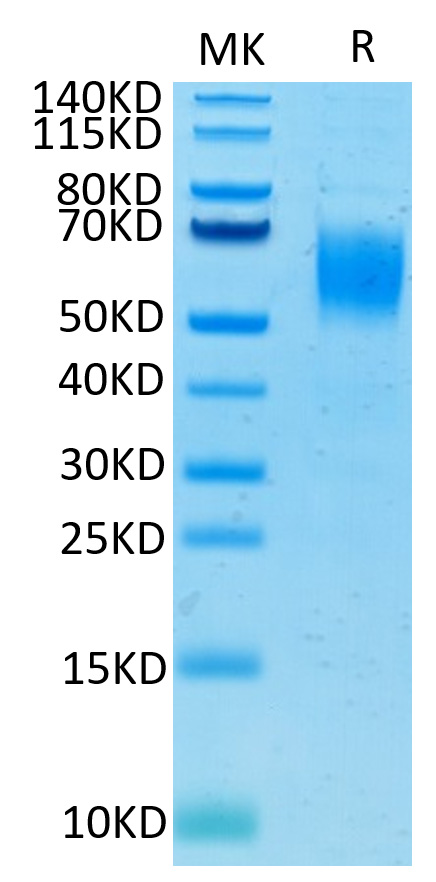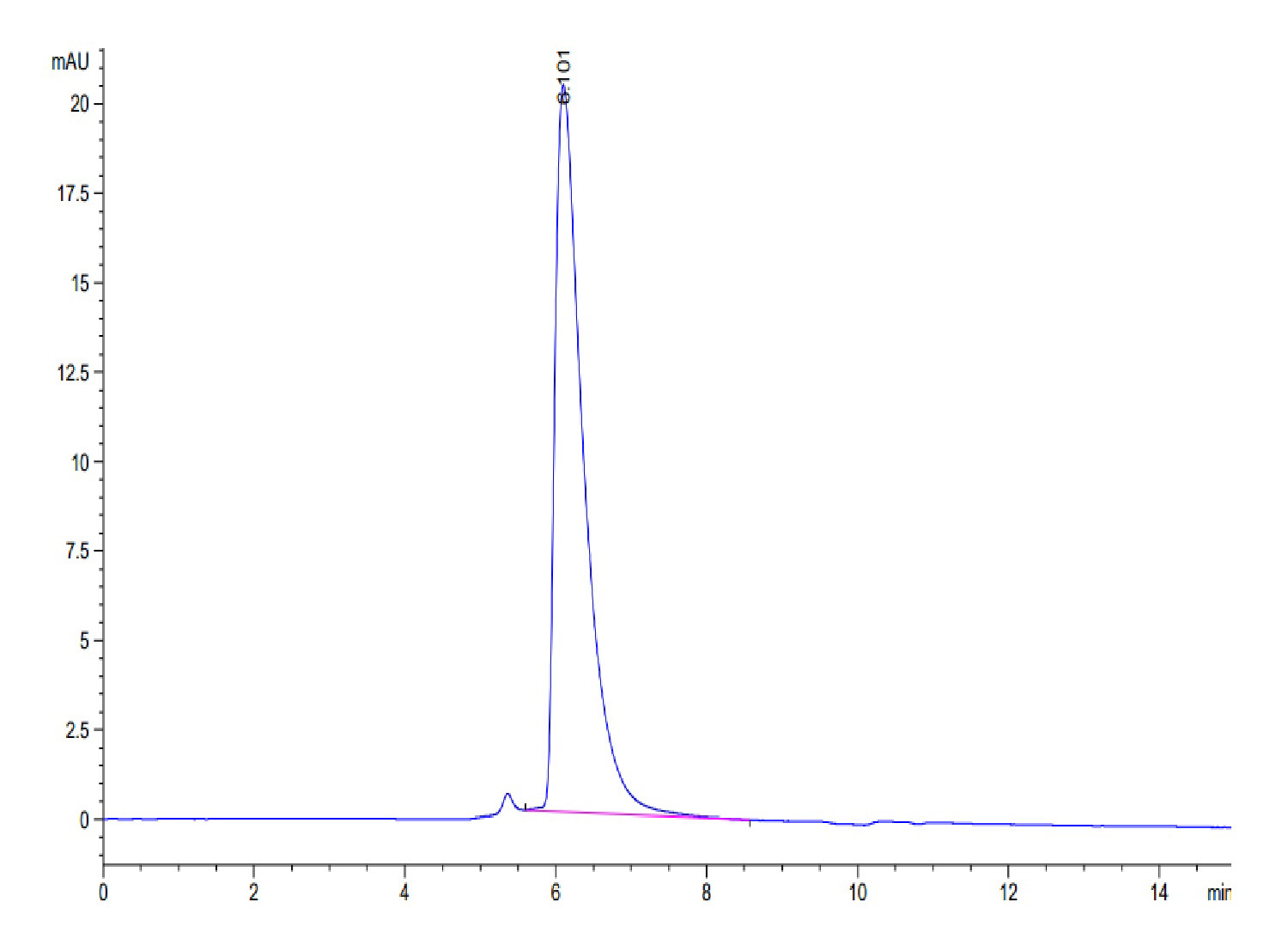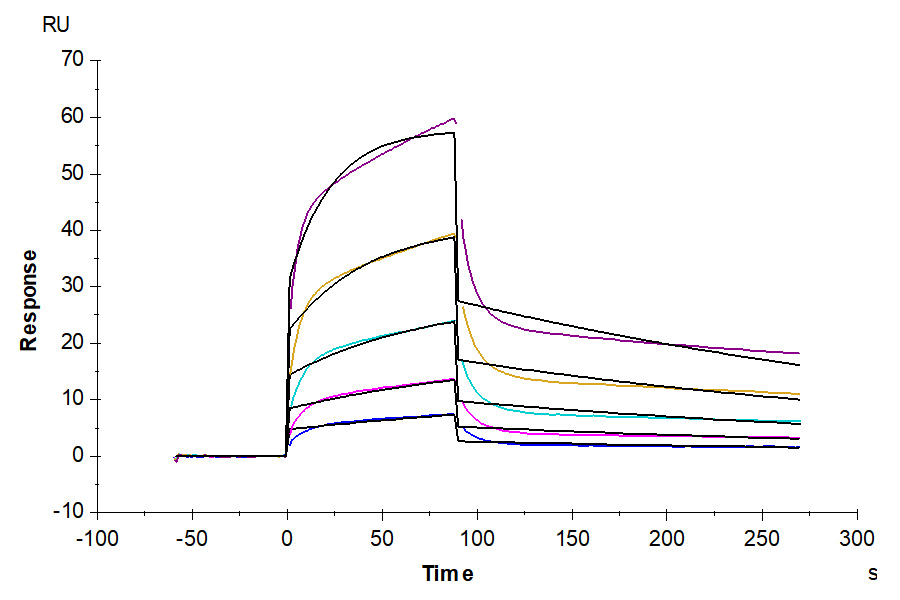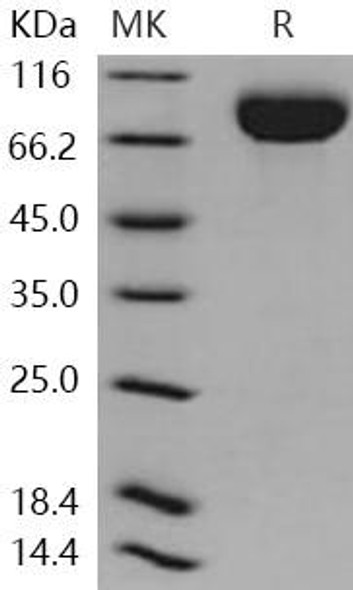Description
| Product Name: | Recombinant Human Nectin-1/PVRL1/CD111 Protein |
| SKU: | RPCB0459 |
| Size: | 100µg |
| Tag: | C-His&Avi |
| Reactivity: | Human |
| Expression Host: | HEK293 cells |
| Protein Description: | High quality, high purity and low endotoxin recombinant Recombinant Human Nectin-1/PVRL1/CD111 Protein , tested reactivity in HEK293 cells and has been validated in SDS-PAGE.100% guaranteed. |
| Endotoxin: | < 1 EU/μg of the protein by LAL method |
| Purity: | > 95% by SDS-PAGE;> 95% by HPLC |
| Formulation: | Lyophilized from 0.22 μm filtered solution in PBS (pH 7.4). Normally 8% trehalose is added as protectant before lyophilization. |
| Gene ID: | 5818 |
Nectins are a small family of Ca -independent immunoglobulin (Ig)-like cell adhesion molecules (CAMs) that organize intercellular junctions. They are highly homologous to the human receptor for poliovirus, and as such have been alternately named poliovirus receptor-related proteins.Nectin-1 promotes cell-cell contacts by forming homophilic or heterophilic trans-dimers. Heterophilic interactions have been detected between Nectin-1 and Nectin-3 and between Nectin-1 and Nectin-4. Has some neurite outgrowth-promoting activity.
| Storage: | Store at -20℃.Store the lyophilized protein at -20℃ to -80 ℃ up to 1 year from the date of receipt.After reconstitution, the protein solution is stable at -20℃ for 3 months, at 2-8℃ for up to 1 week. |
| Reconstitution: | Centrifuge the vial before opening. Reconstitute to a concentration of 0.1-0.5 mg/mL in sterile distilled water. Avoid vortex or vigorously pipetting the protein. For long term storage, it is recommended to add a carrier protein or stablizer (e.g. 0.1% BSA, 5% HSA, 10% FBS or 5% Trehalose), and aliquot the reconstituted protein solution to minimize free-thaw cycles. |
| Swiss-Prot: | Q15223-1 |









